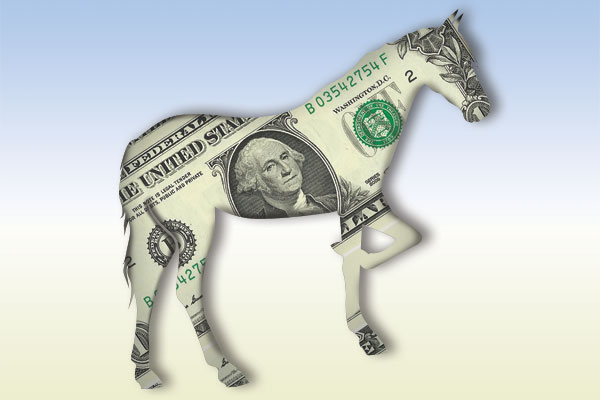
It can be rather intimidating to cross the border with the intention of buying a horse, that is, unless you have the most powerful ally of all?—?valid information. Each state has different regulations and most importantly, many sales have different methods of payment. I contacted two U.S. horse sellers to give you an idea of what you may experience.
Billings Livestock Commission
Billings, MT
“We have strived for painless horse purchasing for our Canadian customers for years,” says Jann Parker of Billings Livestock Commission. “We work hard to keep up to date on the latest health restrictions because we sell anywhere from 10-110 horses to Canada every month.”
Bill and Jann Parker regularly compete up in Canada so the fact that they have first-hand experience crossing the border gives them a unique perspective.
“The sale’s on a Saturday and we have a standing appointment with the State vet for Monday morning,” says Jann. “We courier over the paperwork (at no charge) and by that afternoon the horse can be taken home.”
Every state and every Canadian province has strict health regulations which are enforced for the protection of everyone. If the horse comes from a region with a health restriction, the Parker’s refer the buyer to a topnotch facility where the horse can be boarded until it passes. “But if a Canadian buyer needs us to just hold a horse for a couple of days we can do that; and we don’t charge them.”
As for payment, “We happily take Canadian cheques drawn on a Canadian bank?—?in U.S. funds,” she said.
Western Bloodstock
Weatherford, TX
Western Bloodstock, Ltd., the official sale company of the National Cutting Horse Ass’n hosts performance horse sales from Arkansas to Texas and their staff is quite helpful when it comes to cross-border purchasers.
“Horse sale companies have different terms so I can only speak on behalf of Western Bloodstock,” says Karon Rudibaugh, “but I’d say the two top “must haves” a buyer must know are the methods of payment that are accepted at a sale and the transportation of horses purchased. They are essential to have a good prepared experience.”
When it comes to international payments for example, at all Western Bloodstock Sales the prevalent method of payment is escrowed funds in the Western Bloodstock, Ltd. bank account designated for sale purchases prior to the sale. Other forms accepted are either U.S. cash or American Express Travelers cheques.
“Western Bloodstock does not take any Canadian bank cheques even if in U.S. funds. If a Canadian buyer has an account on a U.S. bank, a check can be pre-approved with a letter of credit on that account.” says Karon. “The sale office does not accept credit cards; it’s assumed ‘everywhere takes credit cards’ – that is not true in our instance.”
The horses are sold with a Coggins test and a U.S. Health Certificate; plus there are vets available to start the additional requirements needed to travel to Canada.
Need to know
- Complete and signed international health certificates for the export of animals from the U.S. must be endorsed by a Veterinary Services area office in order to be valid.
- Make MULTIPLE photocopies of all the documents related to the horse, horse health certificates and sale information.
- When you purchase a horse in the U.S. and import it to Canada, you will have to pay GST on the purchase price of the horse. You will also pay an inspection fee.
- A horse must be inspected by a U.S. veterinarian when entering the U.S., and a Canadian Customs Officer when entering Canada. Stop at both the Canadian and U.S. customs offices to complete the required papers.
- Always check for any late-breaking health restrictions.

